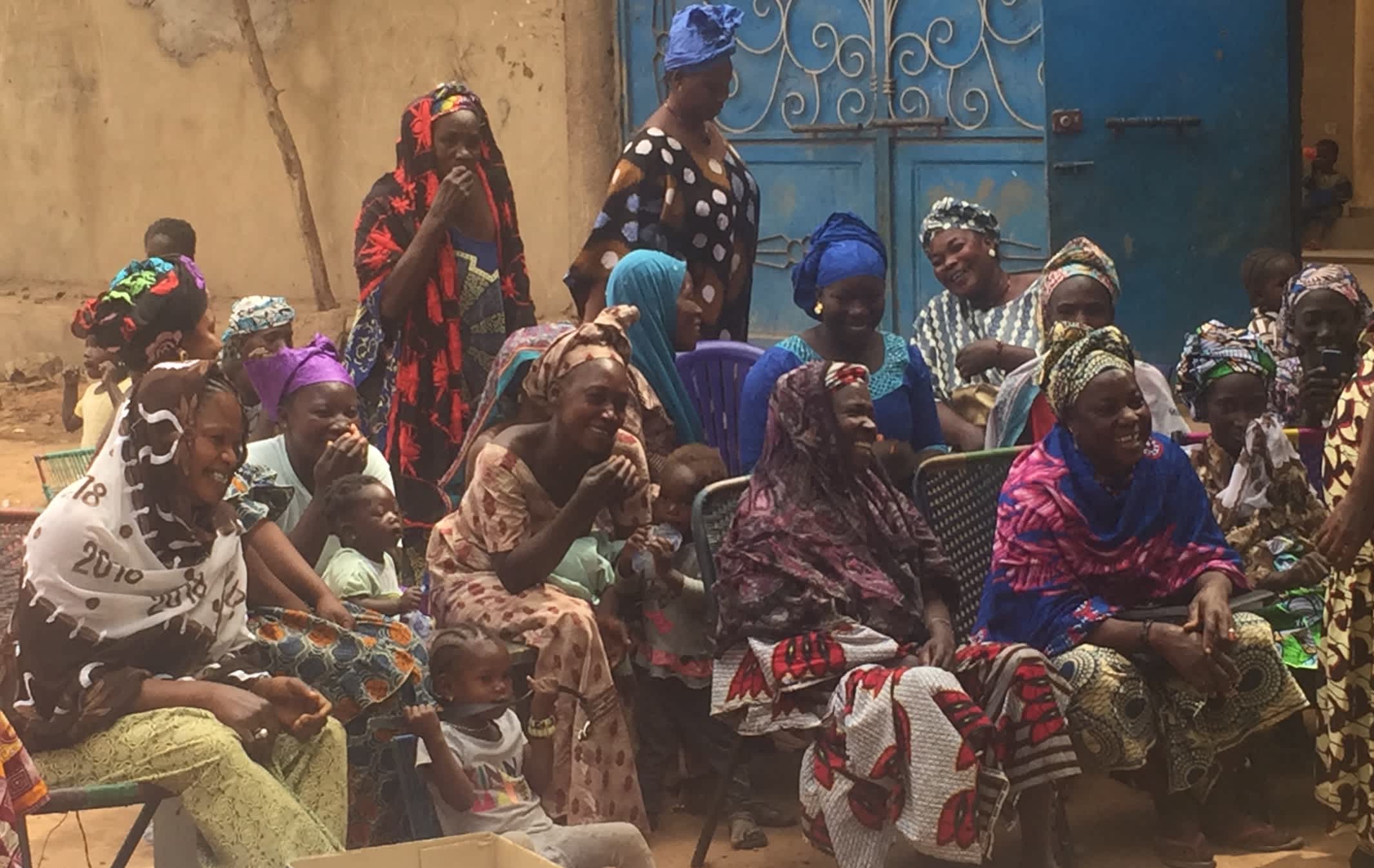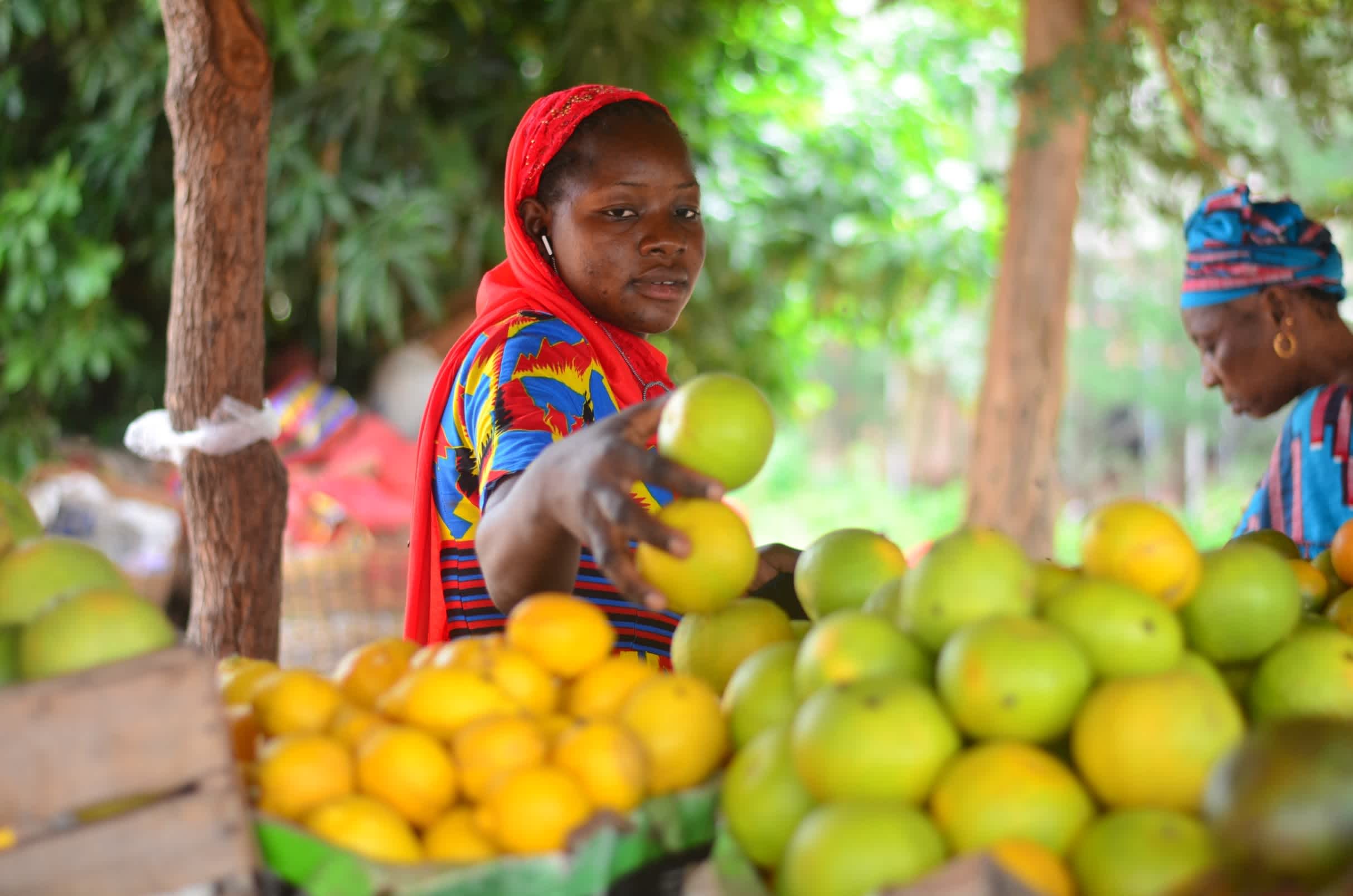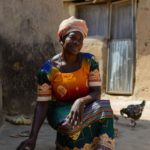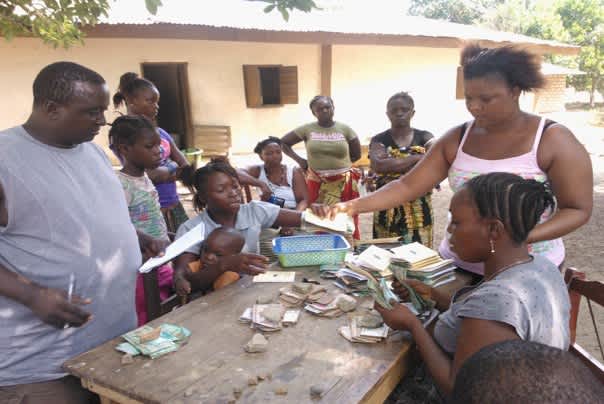
Findings of a research project commissioned by the Canadian Food Security Policy Group
Leaders In The Field (September 2020)PDF
A new study commissioned by the Canadian Food Security Policy Group (FSPG) demonstrates how well-planned, inclusive agricultural development projects can not only improve food security and livelihoods, but also empower women and girls, and improve climate change resilience. The study also provides evidence that Canada’s support for investments in agriculture are declining—this at a time when the COVID-19 pandemic has renewed focus on international vulnerabilities and the need to work towards resilient communities everywhere.

The research project comprises two parts:
- An analysis of trends in Global Affairs Canada (GAC) funding for agricultural development and food security
- Case study research on how Canada’s investment in specific, GAC-supported agricultural projects achieved outcomes in the areas of gender equality, environmental sustainability and climate resilience, improved livelihoods, and enhanced food security.
A Study of how Canadian aid for agriculture contributes to the Feminist International Assistance policy: case studies synthesis report June 2020
In 2019, the Canadian Food Security Policy Group (FSPG) commissioned six case studies to understand how Canadian investments in agriculture support sustainable development outcomes in West Africa. The six projects selected for study were implemented by Canadian civil society organizations, through West African partners, and funded in part by Global Affairs Canada. The six case studies all exemplify how well-planned, inclusive agricultural development projects can not only improve food security and livelihoods, but also empower women and girls, and improve climate change resilience.
Radio pour le développement des chaines de valeur agricole (RADCHA)
Canadian CSO: Farm Radio International
This project spanned four countries. The case study focused on Mali. With support from Farm Radio International, three radio stations produced and disseminated regular broadcasts to 91,000 small-scale poultry farmers (39% women) for two years, on different aspects of chicken farming: e.g. disease control, construction of chicken housing, improved marketing, and promotion of gender equality among poultry farmers. The goal was to increase production and profits.
Financement Agricole et rural au Mali (FARM)
Canadian CSOs: Développement international Desjardins and SOCODEVI
This project aims to increase the productivity and income of 18,706 smallholder farmers (58% women) in Mali through better access to financial services, coaching on farm management and environmental practices and the establishment of links with value chain actors. By engaging not only women but also men around gender equality issues, the project has contributed to changing men’s behaviour towards women and the role of women in agricultural activities.
Innovation and Mobilization Initiative for Food Security (IMSA)
Canadian CSO: Mission inclusion
This project worked with 3000 farmers (51% women) growing cowpea, sorghum, millet, onion and tomatoes in Burkina Faso. It was designed to increase productivity and to improve marketing and environmental sustainability. It strengthened value chains for both women and men and worked with producer organizations to improve governance and make them more responsive to producers’ needs.
Greater Rural Opportunities for Women (GROW)
Canadian CSO: Mennonite Economic Development Associates
This project worked with 23,368 women farmers to improve their household income and food security. It provided training in the production and marking of soybeans, and included activities to improve women’s access to productive land and technology, increase yields, process soybeans into a variety of nutritious products for consumption and sale. It helped link producers to markets to sell soy and other agricultural products, and to improve financial inclusion through links to savings groups and microfinance institutions. It also introduced climate-smart agricultural techniques.
Resilient and Sustainable Livelihoods Transformation (RESULT)
Canadian CSO: Canadian Feed The Children
This project worked with 21,100 farmers (70% women) and their families to overcome food insecurity and vulnerability. It focused on poorer, female-headed households. It aimed to improve women’s access to land, finance, productive resources and technology, and to strengthen women’s decisionmaking power at home and in income-generating activities. It promoted income generating activities
for rural entrepreneurs and provided training for community workers in agriculture and livestock, and for farmers in climate-smart agricultural techniques.
SATISFY – Systems Approach to Improve and Sustain Food Security
Canadian CSO: World Vision Canada
In Sierra Leone this project worked with 17,071 smallholder farmers (62% women), supporting them to grow crops and raise livestock using improved breeds and climate-smart technologies (e.g. System of Rice Intensification). It aimed to promote healthy foods and sustainable livelihoods for women, men and their families. It worked with staff in several government ministries to increase institutional capacity to deliver effective gender-responsive agricultural services. The project was also implemented in Ghana, Mali and Senegal.

Statistical analysis of Canada’s spending and commitments on agriculture and food security
Research by AidWatch Canada finds that there has been a steady decline in Canada’s funding for agriculture in recent years, despite extensive evidence that agricultural development is essential to address many of the SDGs, “leave no one behind”, and achieve the goals of Canada’s Feminist International Assistance Policy.
The Sahel, a semi-arid swath that spans the continent of Africa, is a climate change hotspot. This region is already experiencing increasingly irregular rainfall, droughts and crop failure. In coming decades, temperatures in Africa are predicted to rise faster than the global average, causing droughts, heat waves, declining fresh water supplies, more crop failures, and increased livestock disease.
These effects are expected to push more people into poverty and food insecurity, trigger mass migrations, and add fuel to conflicts over land and resources.
But new research from the Canadian Food Security Policy Group, a coalition of Canadian development organizations, shows that one of the most powerful ways Canada can help is by funding projects that help small-scale farmers, women in particular, to grow crops more efficiently, using climate-resilient techniques and technologies.
CASE STUDIES
Développement international Desjardins and SOCODEVI
Financement Agricole et rural au Mali (FARM)
MALI
Farm Radio International
Radio pour le développement des chaines de valeur agricole (RADCHA)
Mali
RADCHA Stories
Mission inclusion
Innovation and Mobilization Initiative for Food Security (IMSA)
Burkina Faso
Mennonite Economic Development Associates
Greater Rural Opportunities for Women (GROW)
GHANA
Canadian Feed The Children
Resilient and Sustainable Livelihoods Transformation (RESULT)
GHANA
World Vision Canada
Systems Approach to Improve and Sustain Food Security (SATISFY)
SIERRA LEONE


![Bintou Dramé dans sa cuisine alimentée par le bio digesteur [Ignace Nabole]](https://staging.cooperation.ca/wp-content/uploads/2020/12/Bintou-Dramé-dans-sa-cuisine-alimentée-par-le-bio-digesteur-Ignace-Nabole-300x201.jpg)





 Profile of Hannah Anafo – RESULT
Profile of Hannah Anafo – RESULT Profile of Talata Adindanbire – RESULT
Profile of Talata Adindanbire – RESULT